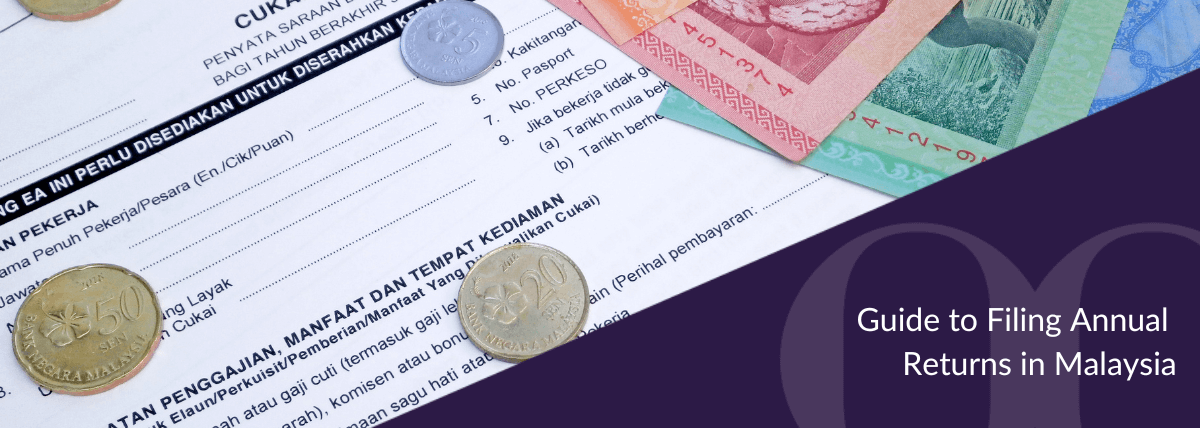How Employee Share Plans work in Malaysia
Essentially, an Employee Share Plan is a remuneration package that can reward employees of both privately held and publicly listed companies in Malaysia with either:
- the company’s ordinary shares; or
- the option to buy these shares in the future at a subsidised rate.
Employee Share Plans are an effective way to attract and motivate your employees while providing an incentive for them to contribute to long-term company performance. These plans can help you to retain and reward your talent whilst managing company cash flow or working capital.
You can use several Employee Share Plan types to provide cash-free remuneration to staff, including:
- Employee Share Option Schemes (ESOSs);
- Share Award Schemes (SASs)
- Performance Share Plans (PSPs)
- Restricted Share Plans (RSPs); and
- Employee Share Purchase Plans (ESPPs).
Our guide to each type below can help you to decide on the best option for your company.
Employee Share Option Schemes (ESOSs): ESOS Meaning & Details
An Employee Share Option Scheme (ESOS) gives employees the contractual right to buy company shares at an exercise price in the future. The reason for this is, the greater the share price, the greater the gain from exercising their options. Typically, you will assign a preferential, pre-determined price or benchmarked value to the share options. It is worth noting that employees are not obligated to purchase these shares, however this right is granted to incentivise employees to continue working hard, as they will directly reap benefits if the company’s share price rises.
An ESOS case study example
Nora Yeoh, the Chief Operating Officer of Jack Manufacturing Company, has received a share option offer to acquire 50,000 company shares. The offer price (also known as the exercise price) per share is RM20.00. There can be a moratorium period which Nora will not be able to exercise the options, which is called a vesting period. Once the moratorium has been lifted, Nora’s options are now vested, and Nora can pay an exercise cost to acquire the shares within a specified period of time.
There could also be certain performance criteria that Nora will have to fulfil before the options vest.
Assuming that the share options vest and Nora is still working at the company on 1 April 2020, she can choose to exercise her share options. If she does this, she will pay RM20.00 per share to receive 50,000 shares in the company.

Share Award Schemes (SASs): SAS Meaning & Details
A Share Award Scheme (SAS) is very similar to an ESOS. The key difference is that employees are rewarded with actual share ownership from the outset, instead of only receiving the option to buy future shares.
As with an ESOS, there could also be certain criteria or performance metrics that the employee will have to fulfil.
To prevent share dilution, companies often only allot 15% of their current outstanding ordinary shares at any time to use in an SAS.
As outlined in the table below, there are two types of SAS:
- Performance Share Plans (PSPs); or
- Restricted Share Plans (RSPs).
| Type of SAS | Plan Duration | Vesting Period | Performance Metric | Participant | Target Companies |
| PSP | 3-5 Years | End of Plan (with Annual Evaluation) | – Total Shareholder Return – Return on Equity – Return on Sales – Market Ranking | – Directors – Non-Executive Directors – Senior Managers – Heads of Department
| – Listed and Private Companies |
| RSP | 3 Years | Annually | – EBITDA – Economic Value Added | – Manager |
Performance Share Plans (PSPs): PSP Meaning & Details
Performance Share Plans (PSPs) are typically aimed at a company’s senior management team. They provide incentives to focus on delivering long-term company performance that creates shareholder value. To help achieve longer-term company objectives, PSPs tend to have longer plan durations (often 3-5 years), and the shares vest at the end of a PSP.
Some companies have a claw-back policy that requires the individual to return a certain number (if not all) of their rewarded shares if their performance is dissatisfactory.
A PSP case study example
After joining the Jack Manufacturing Company Performance Share Plan (PSP), Sarah Perry was allotted 1,000,000 shares on 1 April 2020. At each annual performance evaluation, Sarah receives a score that is independent of her score in previous years.
At the end of her three-year period, Sarah receives 900,000 ordinary shares, based on the average of all of her scores. She can choose to keep or sell these shares. However, she knows that keeping them allows her to enjoy voting rights and makes her eligible to receive dividend payments.
Sarah’s PSP results appear in the table below:
| Evaluation Date (Annually) | 2 April 2021 | 2 April 2022 | 2 April 2023 |
| Score Card | 95% | 110% | 65% |
| Average Score across 3 years | (95% + 110% + 65%) / 3 = 90% | ||
| Total Awarded | 1,000,000 x 90% = 900,000 Ordinary Shares | ||
Restricted Share Plans (RSPs): RSP Meaning & Details
Restricted Share Plans (RSPs) work similarly to PSPs, but over a shorter term. The key difference is that shares in an RSP vest annually, which means these plans tend to better suit companies with short-term objectives.
An RSP case study example
After joining the Jack Manufacturing Company Restricted Share Plan (RSP), Peter Li was allotted 1,000,000 shares on 1 April 2020. The RSP plan has a three-year duration and two vesting periods.
The first vesting date is 2 April 2022. On this date, 50% of Peter’s allotted shares will vest based on his performance from 2 April 2020 until 1 April 2022.
The second vesting date is on 2 April 2023. On this date, the remaining 50% of Peter’s allotted shares will vest, depending on his performance from 2 April 2020 till 1 April 2023.
During the first vesting period, Peter only manages to reach 95% of his pre-set target. The Remuneration Committee (RC) therefore decides to vest only 450,000 shares. They could place the remaining 50,000 shares back in the company’s treasury account, or evaluate it again towards the second vesting period.
For simplicity, let’s assume for this example that they place Peter’s unvested 50,000 shares back into Jack Manufacturing Company’s treasury account.
During the second vesting period, Peter performs well and manages to reach his target. The RC therefore decides to reward him with 500,000 shares.
At the end of the three-year period, Peter has received a total of 950,000 ordinary shares. Like Sarah, he can choose to keep or sell the shares.
Peter’s PSP results appear in the following table:
| Vesting Period | 2 April 2022 | 2 April 2023 |
| Performance Metrics | 95% | 100% |
| Vested | 450,000 | 500,000 |
| Unvested | 50,000 | 0 |
| Total Awarded | 450,000 + 500,00 = 950,000 | |

Employee Share Purchase Plans (ESPPs): ESPP Meaning & Details
You can offer this type of Employee Share Plan to all company employees. Effectively, it means your company subsidises employees to buy ordinary shares in the company.
In an Employee Share Purchase Plan (ESPP), you automatically deduct a portion of the employee’s gross income every month and place it in a separate company account for a minimum one-year period. These plans also usually do not have a vesting period.
At the end of the year, the employee can either:
- choose to use those funds to purchase ordinary shares; or
- have the money transferred back to their personal account.
As an extra incentive for employee participation, you can also offer a good interest rate on the set-aside funds. This means that the employee benefits even if they don’t choose to buy your company’s ordinary shares.
Other effective participation incentives include:
- subsidising a certain amount (such as 25%) of the total cost of any shares that an employee purchases; and
- share purchase matching, in which your company uses its own funds to buy x number of ordinary shares for every x number of ordinary shares the employee buys.
Which Employee Share Plan is best for my company?
In theory, you can use any of the Employee Share Plans in this article to provide cash-free remuneration to staff. However, you still need to consider the complexities and administrative costs of each option.
In our experience, coming up with a single Employee Share Plan that will work for everyone is not possible. That’s why we have designed a specialised digital Employee Share Plan system that is completely flexible.
Our experts can provide you with a purpose-built solution for your needs that will increase efficiencies and reduce costs, while still complying with current and future reporting requirements.
Choose BoardRoom as your trusted Employee Share Plan firm in Malaysia
If you are looking for reliable ESP services in Malaysia from a reputable provider, BoardRoom is your optimal choice. Our expert team has years of experience providing advice, solutions, and services for companies of all sizes and industries, whilst ensuring your organisation stays compliant with all local laws and regulations. Whether you have questions about the best Employee Share Plan options (ESOS, ESPP, or otherwise), the meaning and implications of choosing these plans, how to implement them, and so on, we are happy to assist.
We are also proud to use innovative technologies as part of our offerings – as such, we have designed an all-encompassing Employee Share Plan solution that combines the experience of our expert team with a powerful digital platform, EmployeeServe.
Contact us today to find out more about our comprehensive Employee Stock Option Plan (ESOP) services.




